
Watch the entire series here on Youtube
In industries like film and publishing where Who You Know is the catch phrase for a lucky break, an agent can be vital or detrimental to one’s success. Many people have found work with or without agents. Others (equally talented) have been kept at the proverbial gate barred from entry for not submitting within protocols of the business.
What is the secret to finding an agent? How have others done it? In this post, some of our guests offer their thoughts to these questions.
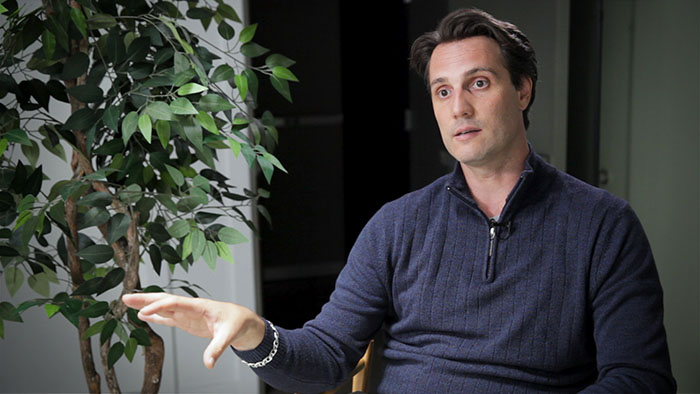
Film Courage: What would you recommend to a screenwriter who doesn’t have an agent manager or producer to guide them?
Mark Heidelberger, producer: Presuming that they are up and coming, I think getting an agent or a manager (not both) when you are starting off is a great avenue because you really need an advocate because a lot of writers are not necessarily good at pitching themselves. And even if you are, there is something that just comes off pretentious and arrogant about talking about how great your work is. I mean, you do the writing, let them do the talking.
So I do think a good agent or a manager, I just don’t think your career is big enough, even big writers don’t often need both…(Watch the video interview on Youtube here).

Check out the book on Amazon here

How To Get A Screenwriting Agent And Manager by Lee Jessup – Watch the video interview on Youtube here
Film Courage: Does the screenwriter find themselves an agent or does the work find them the agent?
Lee Jessup, screenwriting career coach: In a perfect world, the way that we’d love to see it work is your script comes in as a finalist for the Nicholl [Fellowship]. Every manager and agent in town reaches out to you. Boom! You have a manager or an agent, right? You win the UCLA contest. Very much the same scenario. Austin Film Festival, etc. That is not always the scenario.
The scenario for most writers is they are going to work very hard to find a rep. It’s usually going to be a manager first. Because a manager really today serves as talent scouts for the big agencies. And it’s going to take a lot of work, a lot of diligence and a lot of consistency to find that rep…(Watch the video interview on Youtube here).
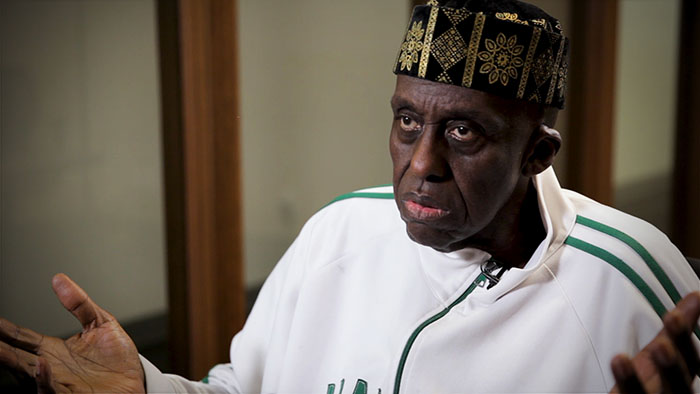
Film Courage: I would imagine you receive emails everyday from people asking for career advice. Can you tell from some of the emails those who really want help and those you may not be able to help?
Bill Duke, Actor, Director, Producer, Author: Yes. There are people who somehow they think something is going to be given to them and there are other people who they talk to you for guidance about how they can get it themselves.
The people who ask for guidance of how they can get it for themselves I’m interested in them because they are not asking me to do it for them. They’re saying You have experience and I’m willing to listen to you so I don’t make crazy mistakes and so those people I relate to because somebody did that for me.
People who come out and they just want (as you so eloquently spoke before) notoriety they’re not serious about this industry, not serious about being a great actor or a great writer, great producer, great director. They just want to be seen and have people know who they are. I don’t take them seriously.
I have a foundation called Duke Media Foundation we teach kids media literacy which what are the jobs of the future going to be and financial literacy…(Watch the video interview on Youtube here).
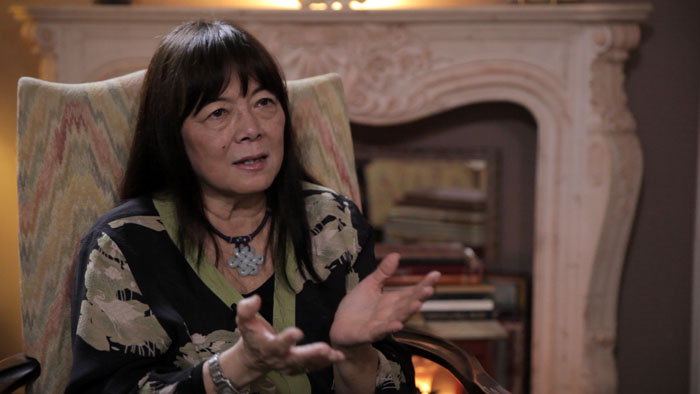
Submitting A Screenplay To Agents and Studios by Kathie Fong Yoneda – Watch the video interview on Youtube here
Film Courage: Going back to the question ‘How Does the Film and Television Industry Work?’ Let’s suppose someone has a reputable agent. This writer has checked them out and they know that they’re in good standing, there are no grievances or complaints. And then they’ve had this agent submit on behalf of them to a studio, what’s the process like? What should they expect? What’s the timeframe? What if the work is optioned? What happens?
Kathie Fong Yoneda: Certainly it does take time, there are more than a 1,000 pieces of material submitted every month to the studios. Maybe slightly less to larger production companies, but that is a lot of material. Somebody has got to read it. It’s got to go up a chain of command so it does take a little while. I would say reasonable time, they usually get things done, read it and will be able to tell you in 4 to 6 weeks roughly. That’s what it used to be when I was working at the studios. It could be slightly longer now, although a lot of times, now everything is on computer so you can just read it at your leisure. You don’t have to wait for things to be mailed and that kind of stuff…(Watch the video interview on Youtube here).

Film Courage: On one of our videos Choice, an actor left a comment and this actor put “I don’t know how to find work and an agent won’t work with me because I don’t have experience.” What would you tell this actor?
Choice Skinner, Actor/Director/Instructor: Pursue a manager because it seems like nowadays they’re easier to gain. But…it’s not like how it used to be. So when you get a manager, you get an agent, then you go out and audition and stuff. You can do a lot of it yourself, you can build your body of work by submitting and creating content. Actors have this tendency of just waiting around or if they get an agent or a manager “Oh…okay. Everything is okay.” No, it’s not…(Watch the video interview on Youtube here).

Check out the book on Amazon here

8 Tips To Finding A Literary Agent by Jennifer Brody – Watch the video interview on Youtube here
Film Courage: Let’s take the hypothetical author who has just written their first novel and now they’re looking for an agent. What steps should they take, how committed to that book should they be? How free should they be to say “Maybe this isn’t the one?”
Jennifer Brody, author/instructor: At the time you write your book, you’ll be so attached to it and so in love with it, it will be heartbreaking if you don’t get agented or if it doesn’t sell even though that’s really typical. My advice is once you start the querying process, is to start writing your next book so you have something else that you’re focused on and you know that it’s not the end of the road. Sometimes it might take an author several books before they find an agent. That’s not uncommon.
The things I really recommend are workshopping a lot, taking classes (I teach at the Writing Pad) which have a workshop component. Or I workshopped the book that I sold (The 13th Continuum) with Meg Wolitzer who is one of my favorite authors. I also workshopped with Victor LaValle who is another one of my favorite authors. And I would go to conferences and try to meet people and it really improved my writing…(Watch the video interview on Youtube here).

Film Courage: As I said before we began rolling, we have a lot of screenwriters who watch our channel. I’m wondering if you can talk about how you and your writing partner (Jason Dolan) ended up getting signed with an agency?
Shawn Christensen, writer/director: We were bashing each other’s screenplays. We were roommates in New York. We were slumming it in Queens. We were 23-24-years-old and were critiquing each other’s script and then we decided why don’t we just write one together and we wrote this movie, it was called SIDNEY HALL (not THE VANISHING OF SIDNEY HALL at the time). And we were interested in this idea of how different we were when were at 18 and now we’re 24 and we felt like we had changed a lot. Not necessarily matured, not necessarily a better person and we wanted to write something that reflected that…(Watch the video interview on Youtube here).

Advice For Finding A Screenwriting Agent by Justin Trevor Winters – Watch the video interview on Youtube here
Justin Trevor Winters, Screenwriter/Instructor: What I try to do is I like to have someone else approach managers and agents for me. So I will talk to potentially some of the talent we had on KILLING WINSTON JONES or I will talk to some of the connections that I have from when I was working at Innovative, assistants that I worked alongside now that are agents or junior agents or development execs or working in some creative capacity in the industry and see if they can call in the favor for me. I mean the thing is I’ve developed quite a few relationships so what I’m trying to rely on is people who actually want to help me so if they read a script of mine and it’s the worst thing they’ve ever read, then it’s not a fit for them to help me and try to take it to anyone. But if they read it and it speaks to them for some reason and they want to take it out or they want to talk to someone about it for me, that’s primarily how I approach the situation. I just think that having worked in the agencies, receiving an email if you’re an assistant or an agent, you’re so busy with other projects, an email, that email is most likely going to end up in the trash. And I’m not saying it should be that way and it’s too bad that it is that way but that’s just the way that it is. It’s the same with cold calling or…(Watch the video interview on Youtube here).
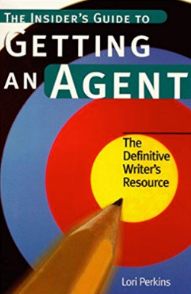
Check out the book on Amazon here

Advice To Actors Seeking An Agent by Bill Oberst Jr. – Watch the video interview on Youtube here
Bill Oberst, Jr., Actor: Before you approach an agent in hopes of representing you, put yourself in the agent’s shoes and have empathy for them and understand if they say “No,” it’s nothing personal.
This will also help you understand what the agent may be looking for. The only reason an agent is interested in you is that they think they can make money off of you. Understand that. It’s not about if they like you or not, it’s whether you as a commodity can make them money. If it’s a good fit they will be interested in you and they’ll be very interested in you if they think they can make money off of you.
So when you make your approach to them, why are you marketable? What about you makes you special or different from any other actor in your category? Know those things and don’t be afraid to say them and ask for ‘The Sale,’ to end the conversation by saying those points but saying “You know, I’d really like to be associated with your agency because of A-B-C.” Which are the same things you said at the beginning…(Watch the video interview on Youtube here).
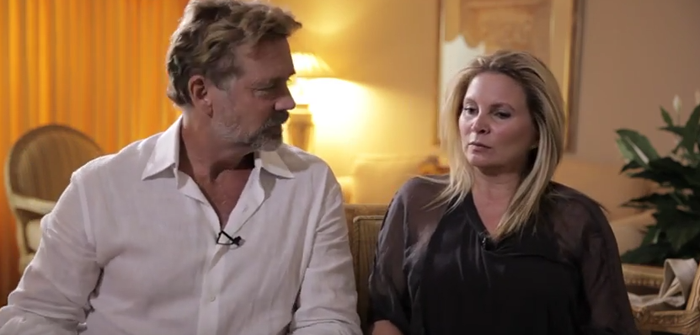
Can An Acting Agent Be A Distraction? by John Schneider & Alicia Allain – Watch the video interview on Youtube here
John Schneider, Actor/Filmmaker and Alicia Allain, Producer: Once we started the studio and started doing what we wanted to do in Louisiana, I no longer saw a need for representation.
There’s a line in a movie we just finished, “My guy says that’s a distraction. A distraction happens.” You know, you’re not doing what you don’t want to do because of life, life got in the way. You got distracted. Distracted happens.
I think that those other kinds of jobs are distractions, I really do. I do believe without getting all spiritual and supernatural on you I do believe that there are forces that will try to get a focused individual (team of individuals) off their game. Because a team of individuals who are focused can’t help but do good things for those they come in contact with and I do believe there is stuff out there that wants to squelch that at every possible opportunity.
So those things I believe are distractions…(Watch the video interview on Youtube here).

Typical First Meeting Between An Actor And Agent by Alex Sol – Watch the video interview on Youtube here
Alex Sol, Actor/Director: Fundamentally the most common thing you would get in the beginning before you got somebody really excited for you for whatever reason is…they would open the meeting like this:
“You know I don’t really have a place for you. I don’t really have a place for you.”
This is the opening of the meeting. So you’ve sat down “Hey, Alex how you are doing? Great…so you were in American History X…Yes…yeah great…I love that director. Yeah…yeah…me, too. He’s great.”
And then fundamentally you just really want to say “What are we doing here? What’s the point of this? Do you want me? Do you not want me?” I want the meeting to go like that. What do you want to do?” I wish it were more direct but so the opening statement would be this…then we’d get through all the niceties and then “I’m not going to be able to take you.” And then we go on for another 40 minutes of the meeting. That’s a real horrible feeling because at that point for me I just want to say “That’s cool. I respect that. I’d like to leave now. But you can’t do that. So you have to sit there and do this ridiculousness for another half an hour as you’re sitting there going I’d never have talk to you if you just told me you want nothing to do with me. So yeah, those are annoying things…(Watch the video interview on Youtube here).

It’s An Acting Agent’s Job To Say No by Kyle Patrick Alvarez – Watch the video interview on Youtube here
Kyle Patrick Alvarez, Writer/Director: You have to know that it’s their job to say “No.” It’s an agent’s job to say no. They are protecting their client and they probably get a lot of requests. You have to be respectful of them but persistent. But then also at that point for me his representation have been incredibly supportive of the project, I don’t have a single bad thing to say about them. They were like “Look, it’s his policy to say no. We really appreciate it. He’s said no to film projects.” And for me at that point I was like “Well this is different and I want to communicate to him how this one is different.” But you know I had a finished film and so I just went to one of his book readings and handed him a copy of the film, I didn’t try to pitch him myself or anything. Davy Rothbart was with This American Life collogue of his. They knew each other and so I could be like “Hey I made this movie about Davy Rothbart, if you like it, I’d like to talk to you.” And so for me it’s always about staying respectful and knowing why people (especially if the author is more well-known) know why they have a system around them and trust that. But also trust your instincts when you’re just like “I just need a chance to talk to them.” And that’s why sometimes I find if you just write a letter, if you write like a personal letter usually it’s their representations imperative to at least pass that letter on. It will take a really cynical agent to tear up a letter, you know what I mean and not pass it on (if you mean it sincerely).
So it’s less about getting an answer and more about doing enough that makes you feel like…(Watch the video interview on Youtube here).

Hiring and Firing An Acting Agent by Tyler Johnson and Pascal Payant – – Watch the video interview on Youtube here
Film Courage: Tyler what’s been your experience looking for an agent or a manager. I know came from the modeling world in New York and you had done acting as a child, as well. What’s your process like looking for an agent or a manager?
Tyler Johnson: One thing that a lot of people I think forget when they’re soliciting representation is it’s as much an interview for you as it is for them. It’s really not a question of who you are working with or the size of the agency. I think it has to do with the passion that your representative has for you and I think a lot of times as actors we go into these meetings looking for a certain outcome and are all too eager to sign on the dotted line when we hear the things that we want to hear. When in reality, there are a lot of hard questions that you have to ask in reverse. This is sometimes hard to do, as an actor because there is a lot of insecurity in this business. The one thing I have always been reminded of (and my Mom does so lovingly to make sure I stay responsible), but is that the second you finish your last job, you’re unemployed and that is the nature of this job. Sometimes when you’re going for these meetings, you feel like you’re back on your heels, as opposed to where you should be, which is firmly centered. How can we work together to achieve a mutually desired result? So for me, that means I have some questions when I go in there, too…(Watch the video interview on Youtube here).

Film Courage: How did you get a screenwriting agent right after college was it?
Todd Berger, filmmaker and co-writer of THE HAPPYTIME MURDERS: I went to school at the University of Texas and they used to do this thing called The Hollywood Showcase where they would take an hour’s worth of student films and they would show it out here in LA at the DGA (Director’s Guild of America) and the would invite alumni (alumni?) of the university just to come and see the short films, just like What are the kids doing back at school?
And so the year I graduated I had written a short film that played and I had written and directed one (so I had two) a puppet short that became the inspiration for THE HAPPYTIME MURDERS.
So you know I was living in Austin. I was delivering pizza. I was going to move to Chicago and do Second City and go to New York because I grew up thinking LA? Hollywood? Sell out? What am I going to sell out?
And so they picked two of my short films for this thing and I graduated like on Saturday and a couple of days later I came to LA just to go the screening, just because I’d never been to LA before and I just graduated and I was like I’ll go to the Hollywood Walk of Fame. I’ll go to the beach.
And so I went to the screening and there is an agent at the screening who just happened to go to my college and he was just there to see the shorts and he liked my short film so much.
And he walked up to me after the reception afterwards and said I loved your short film. Have you written any features before because I’m a literary agent and I represent writers?…(Watch the video interview on Youtube here).

























